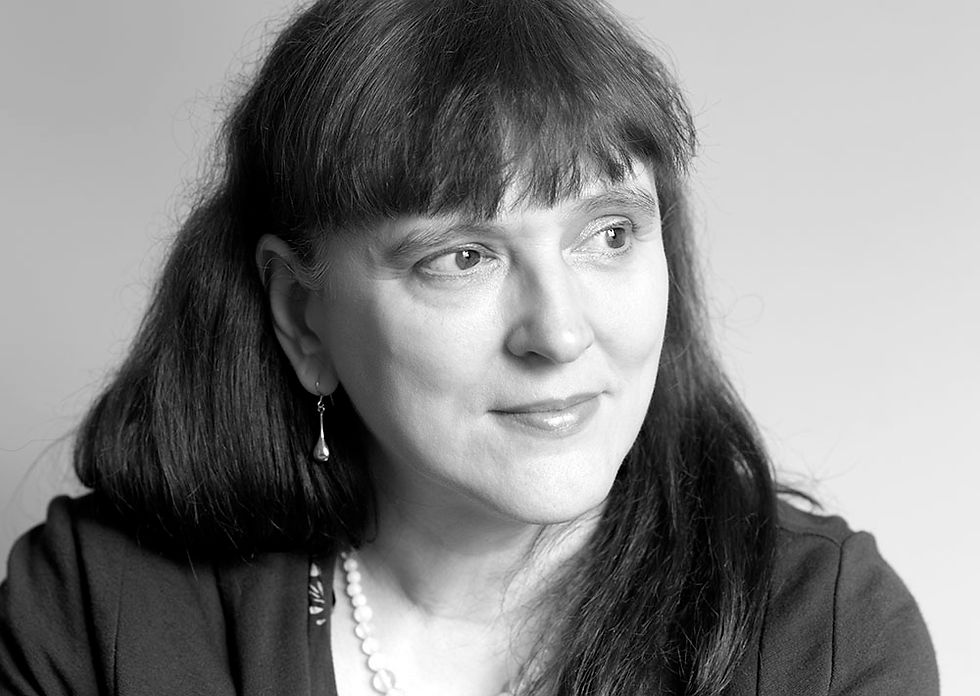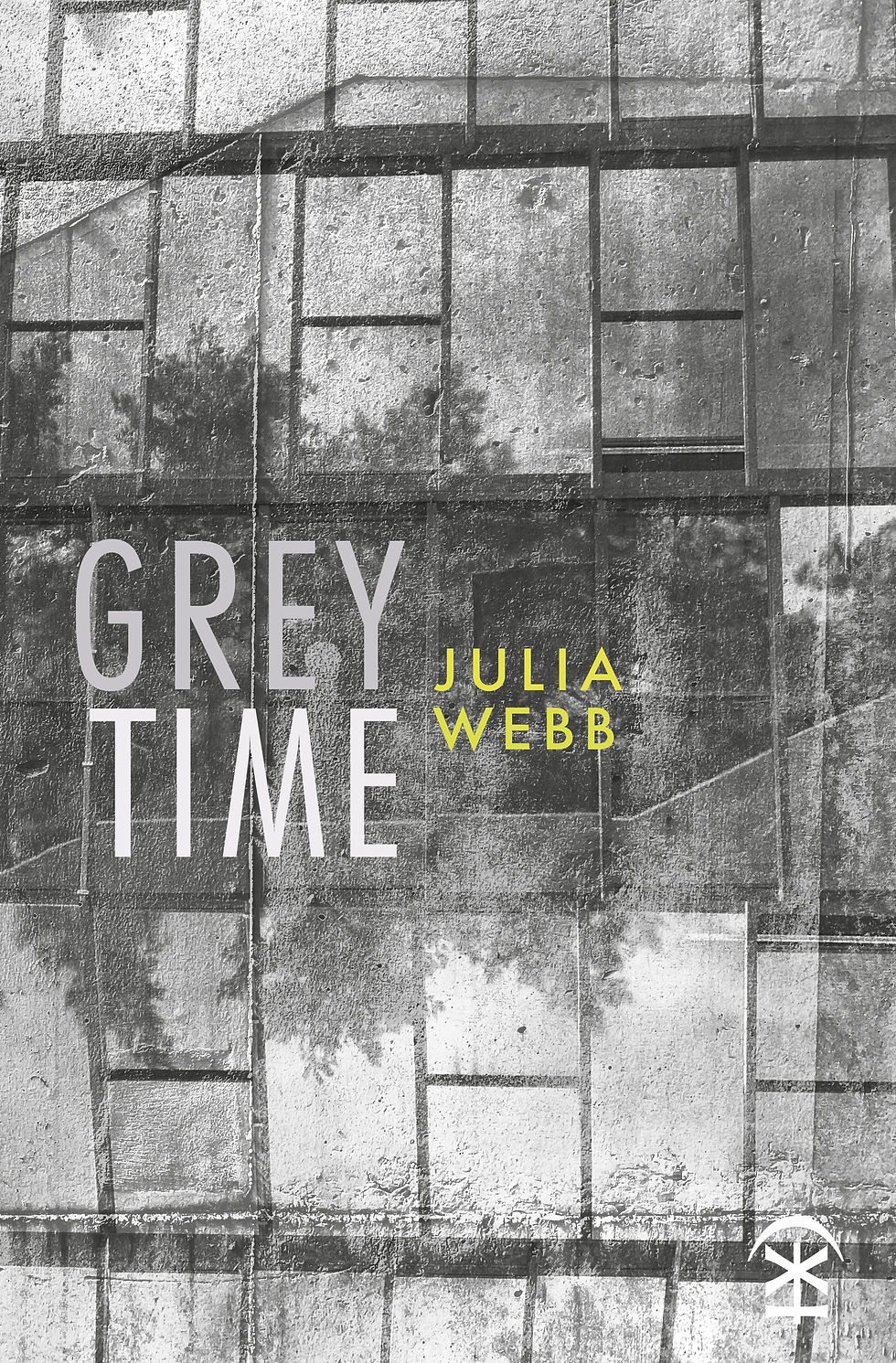Julia Webb: Poet explores evolution of grief, how relationships with those we've lost change
- Sheelagh Caygill

- Aug 5, 2025
- 5 min read

Julia Webb is a neurodivergent poet and artist based in Norwich, UK. She has four poetry collections with Nine Arches Press: Bird Sisters (2016), Threat (2019) The Telling (2022) and Grey Time (2025). She has had two poems highly commended in the Forward Prize. In 2010 she won The Poetry Society’s Stanza competition and in 2018 she won The Battered Moons poetry competition.
Julia has taught creative writing for organisations such as Lapidus, MIND, Norfolk County Council, and The SAW Trust. In 2024 she was commissioned by The National Centre for Writing and Living Wage Foundation to write a poem for Living Wage Week. She is steering editor for Lighthouse – a journal for new writers. Julia says that writers must not only sutdy the craft of writing, but read widely to become good writers. More recently, she is a poet iterested in exploring the evolution of grief and how relationships with with those we have lost change over time. In addition to the links above, you can find Julia on Bluesky, and she blogs here.
Reading books to escape noisy, dysfunctional family

OCW: What life experiences have shaped your writing style?
JW: I have always been a voracious reader. My family had very little spare money as I was growing up, but my parents took us regularly to the local library. I read my way through the entire children’s section and then started on the adult books. I can see the influence of those early literary love affairs in my writing style – Tolkien, Enid Blyton, fairytales, Dr Seuss – lots of magical realism. Reading was a way for me to escape my noisy and dysfunctional family, it opened doorways to fantastical worlds. I remember wanting to be able to write my own stories and poems when I was as young as five or six. As an adult I have been hugely influenced by American short story writers and poets such as Raymond Carver, George Saunders, Jayne Anne Phillips, Sharon Olds and Lynn Emanuel.
Poet explores evolution of grief
I grew up in a small rural market town in Norfolk (in the east of the UK). It was a unique environment – it was an industrial hotspot, and during the 1960s many poor families were moved there from London – the locals referred to this influx as London Overspill. We were of these families – my parents were offered the choice between a flat in a tower block in London or a house that came with a job 73 miles away. They took the house and job! This town and the surrounding forest and countryside informs a lot of my writing. I believe that the place where we spend our formative years has a lasting effect on us. I sometimes write about it directly, but I think it finds its ways into the writing indirectly as well. I often feel like my poems have a particular atmosphere that I can trace back to that town and the acres of pine forest surrounding it.
My first partner was killed in a road accident when I was in my early 20s and this sudden loss has had a massive impact in all areas of my life. I also lost my brother and my mum quite close together and those losses have imbued much of my writing too – when you lose loved ones suddenly and prematurely (especially if the relationships are problematic) it leaves those left behind with a residual guilt as well as things that will remain unresolved. More recently I have become interested in the evolution of grief and how our relationship with those we have lost changes over time.
Reading widely is essential to become a good writer
OCW: Has your writing evolved over the years? If so, how? Through writing experience? Reading a lot? Writing courses or communities? A combination, or something else?
JC: My writing has definitely evolved. When I look back at some of the poems I wrote in my 20s and 30s, I cringe with embarrassment - luckily none of them were remotely good enough to be published anywhere. I think studying the craft is important, but perhaps even more important than that is reading – and reading widely (and internationally). I am always a bit shocked when writers say they don’t really read poetry, or they only read within a specific local (or friendship) group.
Writing is an art, and as with any art you need to serve an apprenticeship of sorts – and that means studying your contemporaries and those who have come before – and not just limiting yourself to writers you are already familiar with or think you will like. It’s good to be challenged. It’s important to read journals as well as books because they are often publishing more groundbreaking work – most journals are the price of a coffee and a slice of cake.
I am a big advocate for the value of life-long learning. I came to academic study late – I started a degree at 40 – it was a unique combination of art and writing. Studying at art school helped me develop the thick skin needed for vigorous critique, while the poetry MA at the University of East Anglia allowed me a year to fully immerse myself in the study and exploration of poetry. The oldest person on the MA in my group was 80!
I believe critique is vitally important for developing my work. I am a member of two different workshopping groups and find their feedback invaluable. I also regularly attend workshops/classes with other writers. The rise of Zoom has been a great thing for those of us who like attending classes. In the UK there are several organisations that offer low-cost workshops with well-known poets. I have found that if my writing has become a bit stuck that sometimes attending a workshop can free me up or offer me a new angle to come at my subject matter from.
Poet's work influenced by grief
OCW: Can you trace any common themes across your writing?
JW: I definitely find that I have themes that I keep coming back to – even if I return to them in different ways. Family dynamics is something I am really interested in, and the complexity of familial relationships, as well as generational trauma and its effects. I have written quite a lot about girlhood and coming of age in a small town, in a very misogynist era. I have suffered quite a lot of (premature) loss in my life, so grief and loss are recurring themes for me too.
OCW: Do you edit as you write, or write and edit later?
JW: I write first and edit later. With poetry, 99% of my first drafts are written in longhand. I find that there is too much self-editing going on when I write on the computer – and not enough risk-taking. Writing is quite a physical act. I feel it’s important to splurge in the first draft – don’t hold back – the first draft is a private thing – editing (and re-editing) comes later. I feel like it’s important not to stop too soon when you are writing – when you feel like you are done with a piece, keep on going for a bit longer – sometimes when you push through the resistance something more interesting comes. At the editing stage I often lose the beginning and the ending of what I have written.


Comments